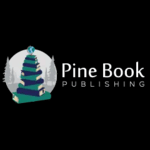The evolution of the modern B2B sales process has revealed the limitations of traditional BANT frameworks. Once the gold standard for lead qualification, BANT—representing Budget, Authority, Need, and Timeline—was designed for a selling environment that no longer exists. In today’s buyer-driven world, control has shifted from the seller to the buyer. This fundamental change has caused the traditional BANT model to fall short in capturing the full spectrum of modern purchasing behavior. The rise of buyer-led qualification marks a shift toward more adaptive, insight-based engagement strategies.
The Decline of Traditional BANT in Modern Sales
BANT worked well when sales teams controlled information, and buyers relied on sellers to educate them about products or services. However, digital transformation has completely altered this dynamic. Today’s buyers have access to vast resources, reviews, and case studies before engaging with sales teams. By the time they do, they are already 70% through their decision-making process. Traditional BANT questions often feel outdated and intrusive to these self-educated buyers, resulting in lost opportunities and reduced engagement.
Understanding the Shift to Buyer Empowerment
Modern B2B buyers operate with autonomy. They define their needs, explore options, and evaluate vendors independently. The qualification process must now respect that autonomy. Instead of interrogating buyers for budget or timeline details, sales teams must interpret intent signals, content engagement, and digital behavior. The fall of old BANT reflects the rise of a more respectful, buyer-centric model that prioritizes insight over interrogation.
The Rise of Buyer-Led Qualification Models
Buyer-led qualification focuses on understanding the buyer’s journey and aligning outreach accordingly. Rather than relying on rigid frameworks, sales teams analyze behavioral data to determine purchase readiness. This model is driven by intent, engagement, and emotional resonance. It empowers buyers to lead conversations while enabling sellers to add value through relevant insights and tailored solutions.
Rethinking Budget as Value Alignment
In traditional BANT, budget was a primary qualification gate. Today, the concept of budget is less about available funds and more about perceived value. Buyers are willing to invest in solutions that align with strategic goals and deliver measurable outcomes. Instead of asking, “Do you have the budget?” modern sales professionals focus on proving ROI and positioning their offering as a growth enabler. This redefinition transforms budget from a limitation into an opportunity for alignment.
Authority in a Collaborative Decision-Making World
In modern B2B organizations, buying authority is rarely centralized. Multiple stakeholders influence the final decision. Traditional BANT oversimplifies this complexity by treating authority as a single role. Buyer-led qualification recognizes the diversity of influence within organizations. It involves mapping the entire decision ecosystem—understanding who drives the initiative, who approves funding, and who uses the solution. This holistic approach leads to deeper engagement and stronger relationships.
Redefining Need Through Buyer Intent
The definition of need has evolved from explicit expression to behavioral evidence. Modern qualification models analyze intent data—signals that indicate active research and problem-solving interest. Instead of waiting for buyers to articulate pain points, sales teams use data to predict needs before they’re voiced. This proactive approach not only increases conversion potential but also positions the seller as a trusted advisor who anticipates challenges rather than reacting to them.
Timeline Becomes an Adaptive Process
Traditional BANT treated timeline as a static parameter—something to be discovered and recorded. In buyer-led qualification, timeline is fluid. Buyers move at their own pace, influenced by external market conditions, internal approvals, and shifting priorities. Modern sellers use behavioral triggers, engagement frequency, and purchase signals to assess timing dynamically. This adaptability ensures that outreach is timely and relevant, not forced or premature.
Leveraging Technology for Buyer-Led Qualification
AI and automation have become vital in enabling buyer-led qualification. Predictive analytics tools interpret digital footprints to forecast buying readiness. CRM integrations allow sales teams to track engagement patterns and intent scores, while marketing automation nurtures leads through personalized content. These technologies help businesses evolve beyond BANT’s rigid questioning into a data-driven qualification process that continuously learns and adapts.
The Cultural Shift in Sales Organizations
Adopting buyer-led qualification requires a mindset shift. Sales professionals must move from controlling conversations to facilitating them. They must listen more, analyze deeper, and deliver insights that matter to the buyer. This cultural evolution builds trust and fosters collaboration, creating long-term value for both the buyer and the seller. Old BANT focused on filtering leads; new qualification models focus on fostering relationships.
The New Standard of Modern Qualification
The fall of old BANT marks not an end but a transformation. The rise of buyer-led qualification represents a new standard that values data, empathy, and adaptability. Organizations embracing this shift are better equipped to engage today’s empowered buyers, build credibility, and accelerate revenue growth. This evolution from rigid qualification to buyer collaboration ensures that businesses remain competitive in an era defined by digital transparency and informed decision-making.
About Us
Acceligize is a global B2B demand-generation and technology marketing firm specializing in performance-driven lead generation solutions. Their services include content syndication, account-based marketing, intent and install-based targeting, and custom campaign strategies. Leveraging data science, technology, and human intelligence, Acceligize helps clients reach high-quality audiences and drive conversions across the full marketing funnel.






